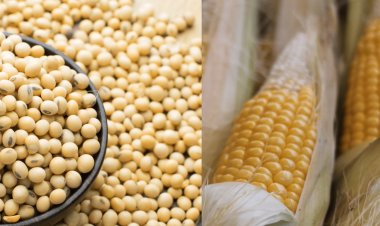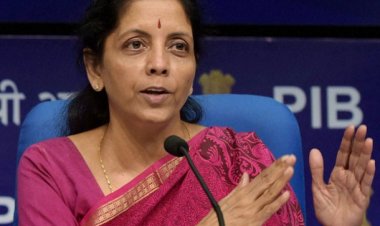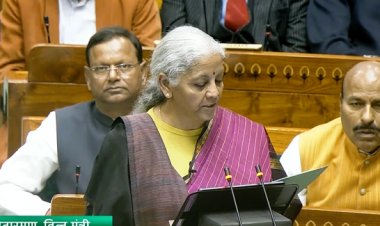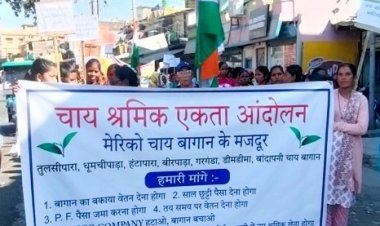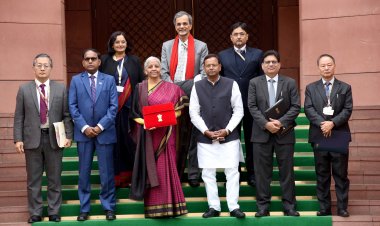Exporters write to PM Modi, seeking lower MEP for basmati rice
The Indian rice industry is struggling due to export restrictions, causing a drop in Basmati and non-Basmati prices domestically. The All India Rice Exporters Association has urged the government to reduce the Minimum Export Price (MEP) for Basmati rice from $950 to $700 per ton, citing uncompetitiveness internationally
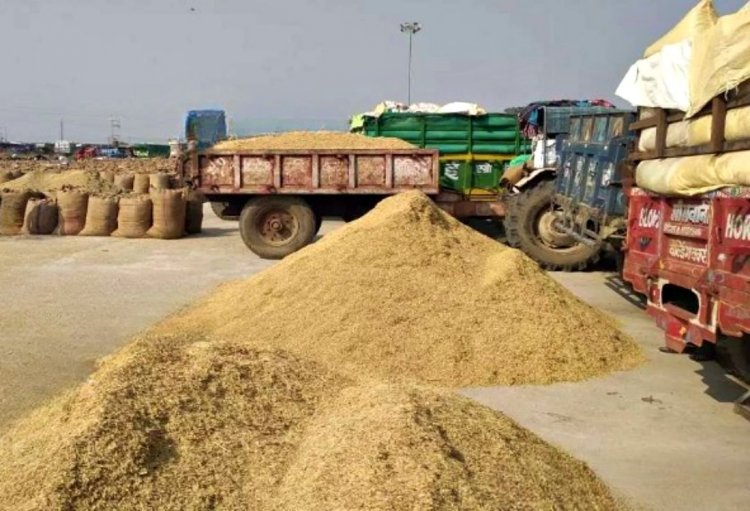
The Indian rice industry is grappling with significant challenges due to restrictions on rice exports, which have also led to a decline in the prices of Basmati and non-Basmati rice in the domestic market. In response, the All India Rice Exporters Association has written to Prime Minister Narendra Modi, urging the reduction of the Minimum Export Price (MEP) for Basmati rice from $950 per ton to $700 per ton. The association argues that the current high MEP has made Indian Basmati rice uncompetitive internationally, allowing Pakistani exporters to dominate the market by selling their Basmati at $700 per ton.
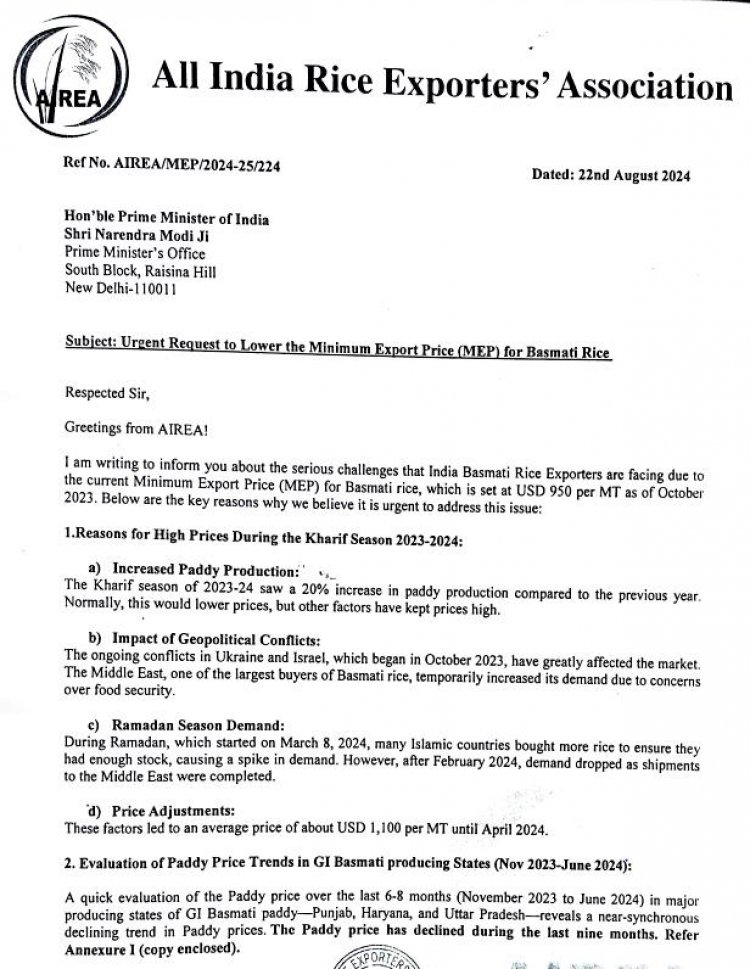
A delegation from the association met with Union Consumer Affairs, Food and Public Distribution Minister Pralhad Joshi to discuss this issue on tuesday. They submitted a memorandum urging a reduction in MEP, highlighting that the high MEP is hindering the export of lower-priced Basmati varieties, thereby affecting the Indian rice industry and causing a decline in domestic Basmati prices.
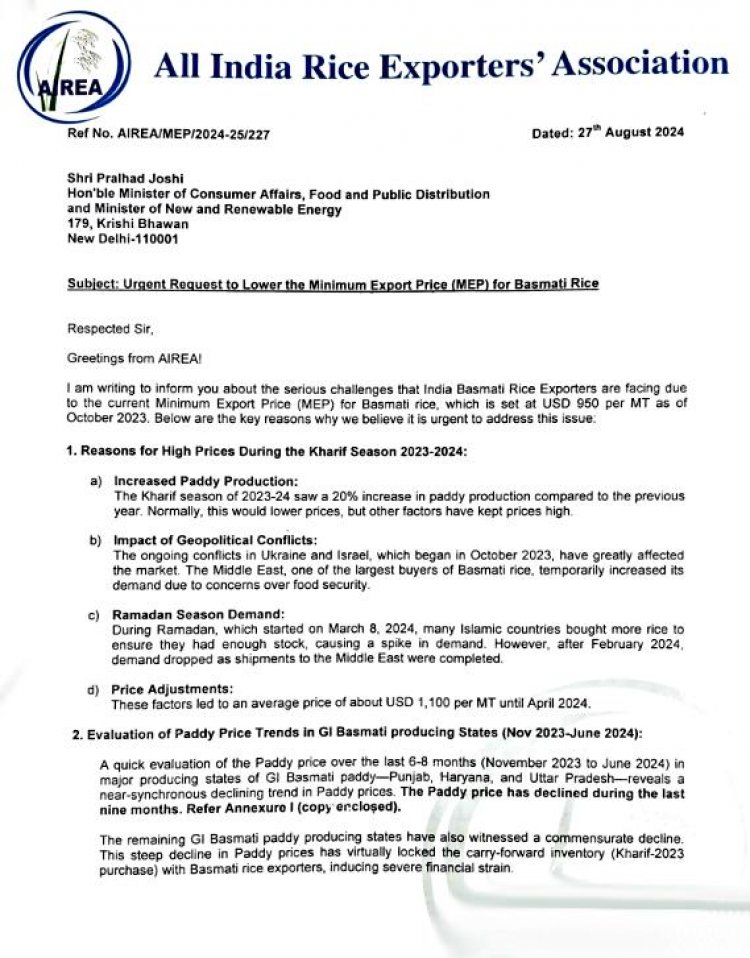
In Haryana, the Rice Exporters Association has also written to Union Commerce and Industry Minister Piyush Goyal and Haryana's Karnal MP and Union Minister Manohar Lal Khattar, requesting a reduction in MEP. Sushil Jain, President of the Haryana Rice Exporters Association, noted that the new Basmati 1509 paddy arriving in Haryana's markets is being sold at Rs 2,200-2,600 per quintal, significantly lower than last year’s price of Rs 3,200-3,800 per quintal. This price drop is causing substantial losses for both the industry and farmers, as exporters and mill owners are unable to purchase the paddy due to the high MEP.
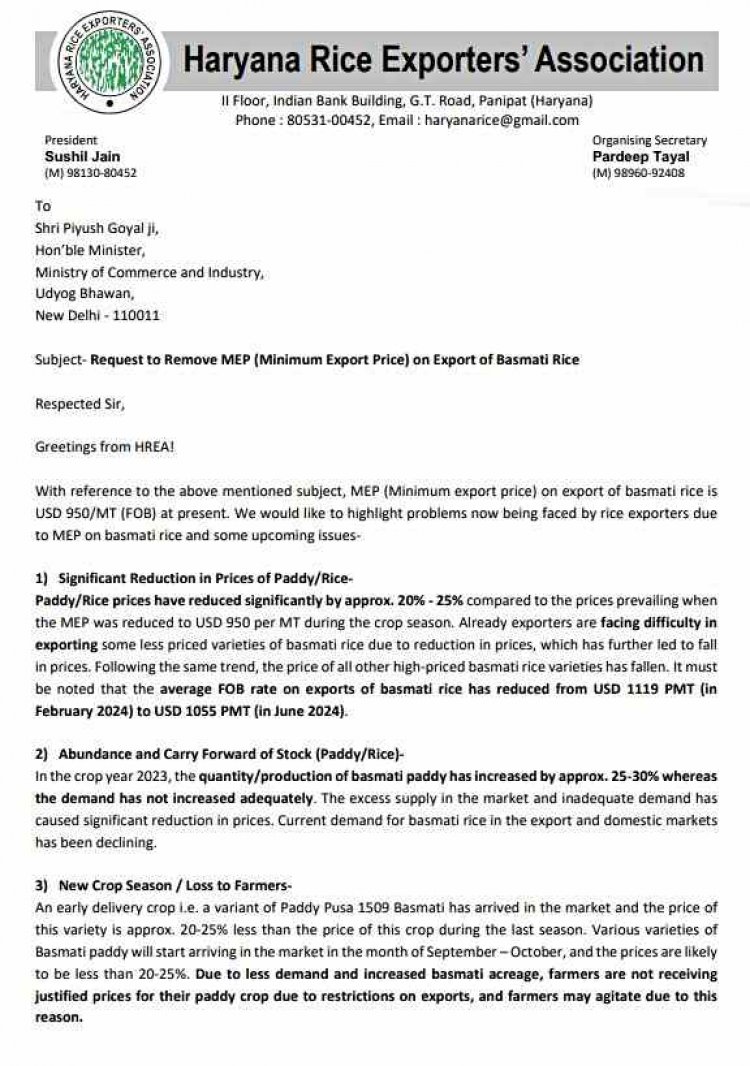
Jain warned that if the MEP is not reduced, India’s position in the international Basmati market will weaken. He highlighted that the industry is already struggling due to last year’s stock and the fall in paddy prices, and with the new Basmati crop entering the market, prices may drop further, leading to more significant losses for both the industry and farmers.



 Join the RuralVoice whatsapp group
Join the RuralVoice whatsapp group

















